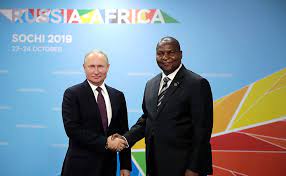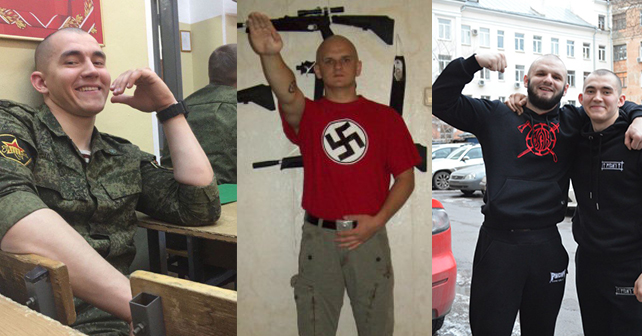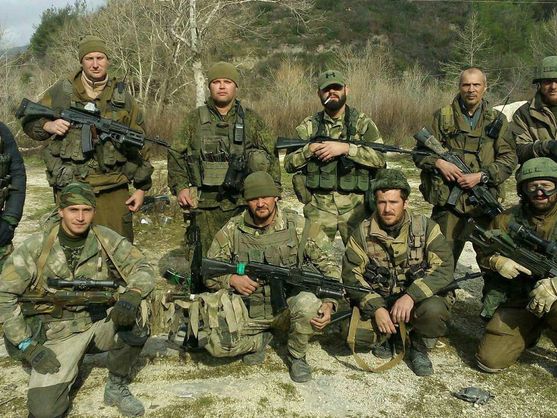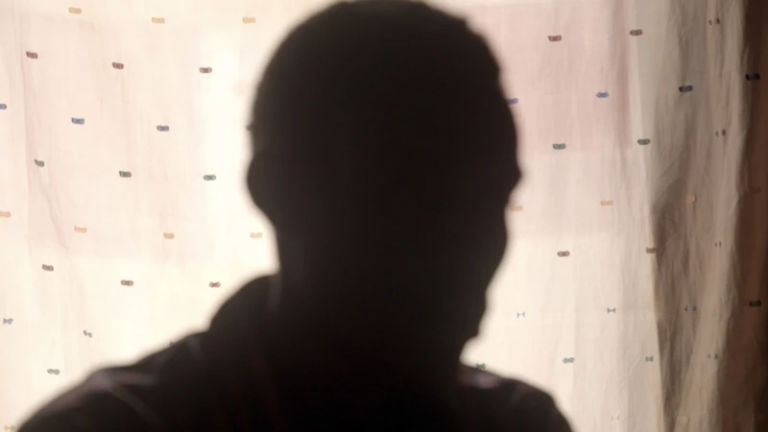Mondafrique / CAR: Wagner’s Russian mercenary racket against the Central African Republic

Mondafrique – October 25, 2021
Original article (French)
On October 17, French Foreign Minister Jean-Yves Le Drian accused the Russian private military company Wagner of “substituting” itself to the authority of the State in the Central African Republic, stressing that “to be able to pay for themselves, they confiscate the fiscal capacity of the State. To what extent are these accusations founded?
The editorial staff of Mondafrique had already revealed on May 21 that a collaboration protocol had been signed between the Central African Ministry of Finance and a Russian economic mission on May 7, 2021, delegating a large part of the attributions of the Ministry of Finance in terms of customs.
Officially, it was a technical cooperation agreement through which the Russian economic mission was to help fight against transit fraud and thus improve the level of revenue collected by the state. In reality, it was mainly for the Russian partners to ensure the recovery of the sums due to the Central African administration in respect of customs duties.
The end goal for the Russians was above all to amortize the colossal sums committed by the mercenary company PMC Wagner to help fight the rebel groups in that country. Thus, at some border posts such as Béloko (on the Garoua-Boulaï – Bangui axis), Russian-speaking agents have begun to control the flow of goods instead of Central African officials of the Directorate General of Customs and Indirect Duties (DGDDI). This Russian mission to Central African Customs is supervised by Yuri Liamchkin, a former director of St. Petersburg Customs sentenced in December 2018 to three years in prison suspended for complicity in fraud by the St. Petersburg court.
International donors uplifted
The main donors of the Central African Republic, in particular the Bretton Woods institutions and the European Union which had been presented with the fait accompli, quickly conditioned certain key fundings to the cessation of this Russian cooperation in the collection of customs revenues.
As Central African public finances are more dependent than ever on international donors, this customs cooperation was stopped on October 6 by the new Finance Minister Hervé Ndoba. This decision aroused the anger of the Russian partners. In order to round off the corners, the President of the National Assembly, Simplice Mathieu Sarandji, sent during a ceremony organized at the Central African Parliament on October 15 a letter of Alexander Ivanov, head of the COSI (Community of Officers for International Security – a representative institution of the Wagner group). The letter stressed that “the Interventions of the Russian Contingent alongside our Forces have been very effective in reconquering most of the areas occupied by these terrorists.”
Despite the concern to preserve its Russian ally, the Central African authorities have been attacked by their Russian allies who do not intend to relax their control over Central African customs and Russian pressure on the ground remains very strong on Central African customs officials. It is in this context that a new collaboration agreement between the Ministry of Finance and the Russian company “SJ Amiko”, represented by Mrs. Svetlana Emilianova, provides for new Russian support to Central African customs. Thus, despite pressure from international donors, the Russian partners do not seem resigned to relax their grip on the fiscal capacity of the Central African State…






